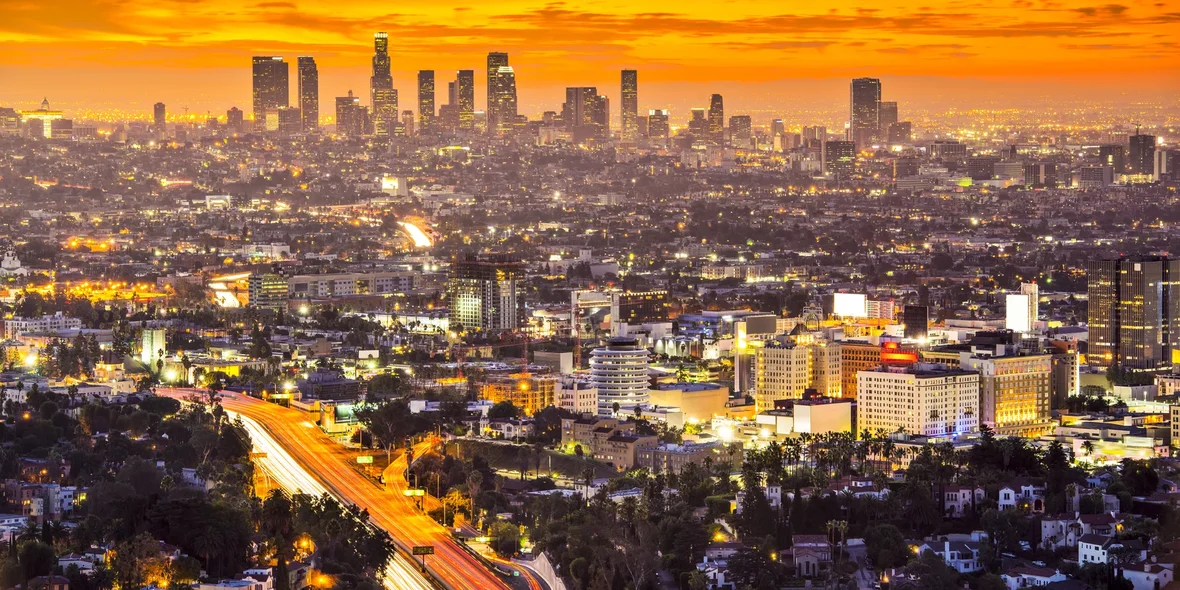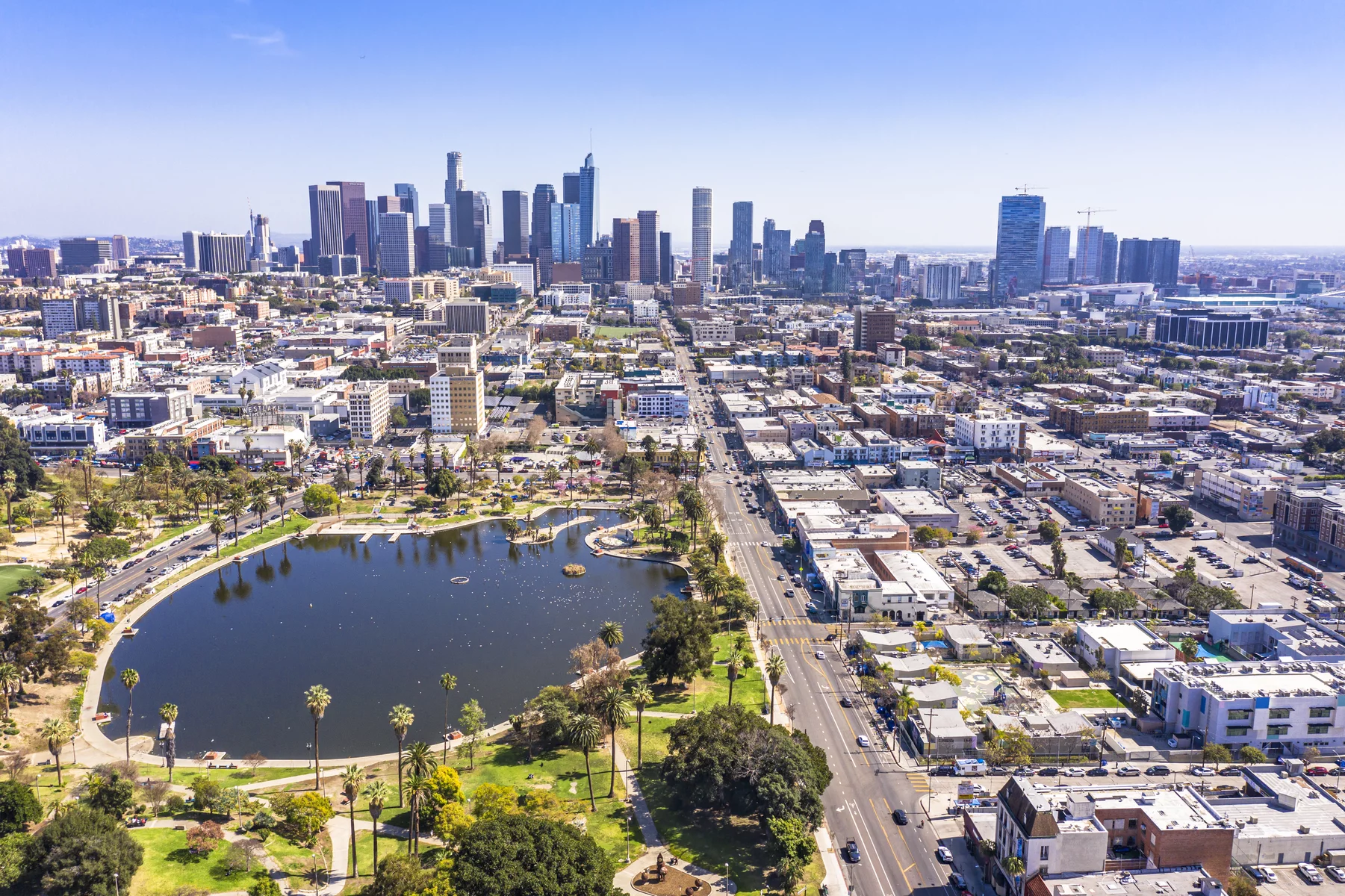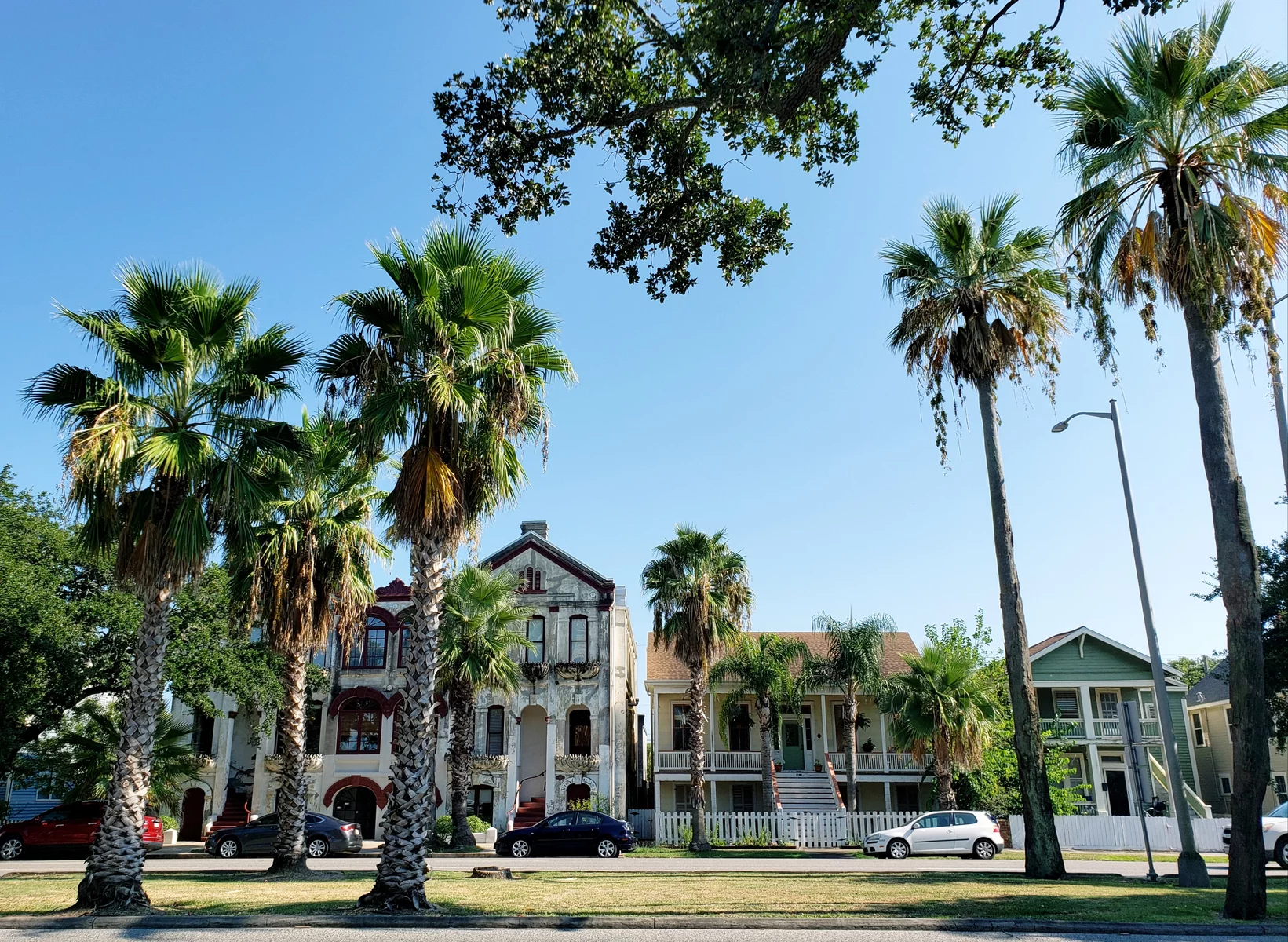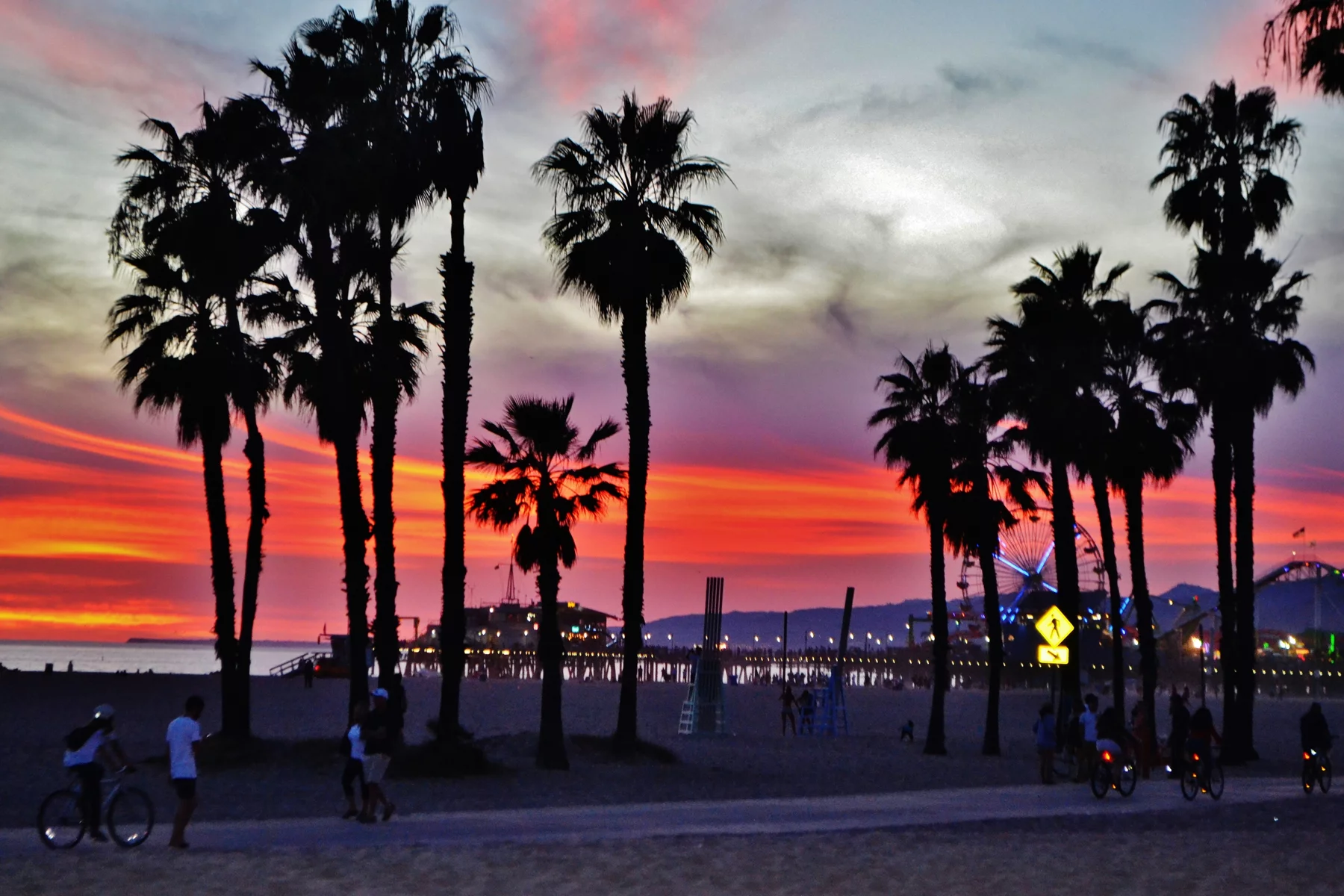
“The hottest price range is $2–3 million for a three-bedroom condo.” The realtor in California talks about the threshold for entering the market, bidding for homes, and mortgage rates
Real estate prices in California are the highest on the continent (more expensive only in Hawaii). Svetlana Yukin, a realtor in California, told us about it. From our large interview with her, you will learn: how things are in the real estate market in this American state; how much houses and apartments cost on average in Los Angeles, Beverly Hills, and other Californian cities; how a foreigner can buy a house there and take a mortgage for this purpose; and what will happen when the mortgage rate begins to fall.
“California's economy is the 5th largest in the world.”

— How is California's real estate market different from other American states? How is it structured?
— Let's start with the fact that the entire residential real estate market in the United States is currently valued at about $47 trillion. California holds nearly 20% of that market, and the total value of homes in our state is estimated at $9.5 trillion. This compares to the markets of Florida, New York, and Texas combined, which are each worth approximately $3.1–$3.3 trillion. So, of course, California's real estate market is unique.
Mild and, in general, dry climate, the Pacific Ocean, picturesque and diverse landscape, the proximity of dozens of national parks and the largest metropolitan areas in the United States, combined with top universities and the most developed economy in the country (California's economy is in 5th place in the world, overtaking the UK and France)—all this constantly attracts to our state those who can afford to buy real estate here.
Not to be forgotten, Los Angeles is one of the most colorful representatives of “one-story America.” Due to seismicity, most of our homes are wooden, one- or two-story single-family homes. Such houses are not afraid of earthquakes of 5.5-7 points, as wood is one of the most elastic materials and is resistant to such natural disasters. In the 1970s, the city introduced special standards for the construction of houses, and today Downtown Los Angeles, with high-rises of 70–80 floors, is regarded as the neighborhood with the highest earthquake resistance in the world.
“Mortgage rates are now at record highs for the past 21 years.”
— I recently read that housing affordability in the U.S. is at an all-time low right now, in part due to strong price increases and a lack of supply in the market. Can you please tell me about the affordability situation in California?
— Yes, thanks to price appreciation in California over the past 13 years (156 months) and, at the same time, the slow but sure increase in mortgage rates, our housing affordability has dropped from about 25% to 16% over the past year. Here we are talking about those California real estate buyers who need a loan to purchase a home.
Right now, the mortgage rate is at a record high for the last 21 years, from 6.8% to 7%. Just two years ago, it was at a historic low of 2.2%–2.5%.
Those property owners who wanted to move this year (sell their home and buy a new one) have been held hostage to the low rate they were able to command in previous years. In fact, it was because of the high mortgage rate that only 1.5% of U.S. homes changed ownership this year, compared to about 2% in 2019.
The upshot is that despite the continuous price increases and high interest rates, we are seeing an amazing situation: due to the low number of homes on the market, buyers are having to fight for the opportunity to buy them during the offer period. This summer in California, we again saw 20–30 offers on a single home within just a couple of days on the market. Buyers are willing to overpay up to 10–15% of the asking price to win the bidding.
That is, in the Los Angeles Valley, these are homes in the $1.2–$1.5 million range; in Pacific Palisades and Brentwood, from $2.5–$3 million; and in Beverly Hills and Bel Air, from $5–$7 million. In all of these price categories, we are seeing multiple offers on a single property at the same time.
If we believe analysts' forecasts, as soon as the mortgage rate starts to fall again (quite possibly starting next year), we will again see a sharp surge in activity among both the so-called first-time buyers and those who need to sell their own home to buy a new one.
— Along with this, I would like to point out that the number of all-cash buyers has been hovering around 24–25% of all purchase transactions for the past year in a row. This, among other things, contributes to the persistent housing shortage.
Many people in California have “living” money to buy, and nearly a quarter of buyers don't need a mortgage. Among them are quite a few investors as well as ordinary families. And, as a general rule, the higher the purchase amount, the less often a mortgage is involved.
In this context, many would think that most all-cash buyers in California are foreigners. Not at all. The total number of home purchases made by foreigners in our state over the last decade balances at just 3%. Overall, foreigners account for about 2% of purchases in the US. Florida leads the way with 6% of home purchases by foreigners.

“The most expensive apartment in Los Angeles is now listed for $37 million.”
— Let's give examples: For how much can one buy an apartment today in Los Angeles and other cities in the state on average? And how do prices in California differ from other states?
— Real estate prices in California are the highest on the continent. Only Hawaii is more expensive.
However, prices vary from county to county. In Southern California, where I work, the most expensive county is Orange County, which is located right in the middle between Los Angeles and San Diego. The average home there costs $1.3 million, and that number continues to rise steadily. Many moved here during the pandemic from Northern California, San Francisco, Silicon Valley, and even Los Angeles itself, seeking a quieter lifestyle away from the big cities. Local income levels in some Orange County neighborhoods are now five times higher than the nation as a whole.
As for Los Angeles, prices in the city are up 11% this summer (compared to last year) and are now, as of September 2023, at $850,000. That includes the most modest neighborhoods, like Compton or Pomona. By comparison, the median home price in all of the United States is $416,000.
In Los Angeles, you can theoretically buy an apartment for $300–400 thousand, but it will be a very modest studio in one of the most insecure neighborhoods. If we talk about apartments in the central part of the city—Brentwood, West Hollywood, or Beverly Hills—the cost of apartments there, on average, varies from $1.5-2 million to $10-15 million, depending on the specific building. The most popular price category is $2–3 million for an apartment with three bedrooms.
The most expensive apartment in Los Angeles is now listed for $37 million in the Four Seasons building in Beverly Hills.
— Where can one find less expensive housing in California?
— The cheapest real estate can be found in the central, agricultural part of the state—in areas such as Fresno or Bakersfield.
Many people don't know, but California's main income is not Silicon Valley, oil (although there's plenty of that too), Boeings, or the movie industry. It's agriculture. California provides produce for all of the United States: oranges, lemons, tomatoes, strawberries, blueberries, grapes, all kinds of nuts, spicy herbs, garlic, and, of course, beef. That's why California is home to some of the most trim Americans. We eat fresh, unfrozen produce brought straight from the farms.
Thus, in the central areas of the house, it can cost $400,000–$500,000. But you should keep in mind that California is one of the largest states by area (3rd in the U.S. after Alaska and Texas), so the fact that you buy a house somewhere in its central part does not mean that the picture you will see is like in Santa Monica.
Also, more affordable prices can be found in the neighborhoods of Sacramento, the capital of California. By the way, about 70% of the population is Russian-speaking.

“A one-bedroom apartment in a safe neighborhood can be rented for $2000–2200 per month.”
— Which properties are in constant demand in California? Does this demand change over time, and in which direction?
— There has been a steady increase in demand for Single-Family homes as renting in California becomes less and less affordable.
Also, the demand for homes in gated communities increases every year, but not everyone is willing to overpay $300–$1000 a month for the opportunity to live outside the gates. Americans are very practical people who, from school on, learn to save on everything. But among the Russian-speaking segment, such gated communities are most in demand because they allow them to retain the sense of so-called “status” to which they are accustomed in their homeland.
— How is the rental market in California? What are the rent prices for apartments in Los Angeles?
— California rents and prices are continuously on the rise. The only exception in recent years that I would call pandemic 2020, which was a bust for most landlords.
A one-bedroom apartment in a more or less safe neighborhood can be rented for $2000–2200 a month, a two-bedroom for $2800–3000 a month, and a house for $8,000–$10,000.
Single-family homes in neighborhoods such as Beverly Hills, Bel-Air, Brentwood, and Pacific Palisades rent from $25,000 to $100,000 per month if you sign a contract for a year.

“Buying a home in the U.S. is a passive investment. There are no advantages in an immigration sense.”
— How can a foreigner buy real estate in Los Angeles and, in general, in California? What does it take to do this, and what does the process look like?
— There are absolutely no restrictions on purchases by foreigners. A foreigner can complete a real estate purchase in California entirely remotely. I, for example, often serve as the “eyes” of my foreign clients, conducting inspections for them and sending them detailed video reviews.
However, I can tell you from experience that it is very difficult for foreigners to make a decision to buy a house for several million dollars without seeing it in person. Therefore, I strongly recommend flying here in person and choosing the right house together. You may not like the neighborhood, it may not be suitable for the climate; your children may not be admitted to every school without a study visa, etc. So on the spot, we together with buyers solve a lot of issues, from opening an account in an American bank (which, most likely, will be needed for the purchase), registration of a family trust or LLC, to personal presence at the inspection of the house and signing the documents.
The buying process itself looks pretty simple from the outside and is almost completely automated. Agents are in the business of making it easier and faster, identifying any pitfalls along the way.
Essentially, all we need for the purchase is a copy of your passport and proof of your funds (preferably in a local US account).
From day one of the transaction, third parties (escrow and title companies) are involved: they monitor the movement of all funds, their safety in their account, document flow, encumbrances that may hang on the house (unpaid mortgages, tax arrears, unpaid debts to developers, etc.), and compliance with all the terms we have agreed with the seller.
— What does buying real estate in California give you?
— In general, only the ability to live in or rent out your property. There are no immigration benefits to buying a home in California.
Any manipulation on the topic of buying a residential house to obtain an investment visa (EB-5) is most often doomed to failure, as the purchase of a house in the U.S. is a passive investment, on the basis of which you cannot claim any prospects in the immigration plan.
I always recommend consulting a local immigration attorney already here in Los Angeles on this matter who will provide an educated answer.
— How much does it cost to maintain a home in California? What are the property taxes in the state?
— The main cost of maintenance is property tax, which in California is one of the lowest in the United States (from 0.6% to 1% of the purchase price of the house). These taxes are paid annually in two installments directly to the city. Together with city fees, the property tax in Los Angeles itself is 1.25% of the purchase price.
In comparison, Texas property taxes are now 1.8%, and New Jersey property taxes are almost 2.5%.
In addition to taxes, you may have a monthly homeowners association fee (HOA fee) if your home is in a gated (or ungated) community. It can range from $50 to $2000 per month, depending on the location and prestige of the neighborhood. In the most expensive community in the United States—Beverly Park in Beverly Hills—this fee is $4000 per month, and for those with double lots, respectively, $8000 per month!
And, of course, we do not forget about utility bills. The newer and more environmentally friendly your house, the cheaper its maintenance will be. On average, for a house with 3–4 bedrooms, the monthly bill for water, gas, and electricity in California will range from $300 to $500 per month.

“About one-third of foreign buyers are from Asian countries.”
— Which foreigners buy real estate in California most often? What does the map of major buyers look like at the moment?
— Overall, the number of foreign buyers has held steady at 3% of all sales in California over the past few years. About a third (38%) are from Asian countries, mostly China. Of those, nearly half are buying a home with cash and no mortgage. Buyers from Canada are in second place (15%), followed by Latin Americans (12%), and only Europeans follow.
During the pandemic, there was a slight drop in foreign buyers, but we had such strong demand among locals in 2020–2022, that it went virtually unnoticed.
— Can foreigners take out a mortgage to buy a home in California?
— Yes, foreigners can take out a mortgage to buy their own home as well as investment real estate. However, the conditions for them are different than for locals, and the rates are also higher—now at the level of 10–12% per annum.
To obtain a mortgage, a foreigner must prove the presence of legal income outside the U.S., have funds for a down payment of at least 35–40% of the purchase price, and have a valid visa in the United States.
Mortgage programs and terms can vary, as can interest rates. For this reason, I always recommend a mortgage broker to help my clients with this issue.
As I noted earlier, right now mortgage rates are hovering around 6.8%, which is causing buyers to put off the decision to buy for a while. On the other hand, if you've been renting a condo or house in California for years, it's still wise to pay for your mortgage, not someone else's, and refinance your loan on more favorable terms the moment the rate drops. This can be done at any time.
— How much can you make in real estate in California, and what are the ways to do it?
— The California market has a very high entry threshold. You should not expect a return on liquid real estate of more than 4–5% per year. We are talking about both residential and commercial real estate. There are plenty of tools for how you can optimize your real estate income, including proper design, property management, diversification, and the so-called 1031-Exchange (a way to defer income tax by exchanging one property for another).
Of course, you should not forget that the demand for real estate in California is always the highest in the U.S., so in 10–15 years, the yield (and value) of your property will be completely different.
— Based on the current situation in the California market, what can we expect in the future, in your opinion?
— We expect mortgage rates to stabilize over the next two years and for both sellers and buyers to increase (likely even surge) in activity. And consequently, further increases in California real estate prices.
The new, so-called “wealth tax” (Mansion tax), which came into effect in April 2023, will allow for the next dozen years to collect from the owners of real estate worth $5 million and more, several hundred million, which Los Angeles will use to build affordable housing for less wealthy citizens and return them from the streets to the roofs.
Also, the 2028 Olympics in Los Angeles, for which the infrastructure is already ready, will definitely affect the demand for both renting and buying, including from foreigners.
As long as the sun shines 300 days a year in Los Angeles, the real estate market has excellent prospects.
Author
I am responsible for editorial work. I write expert interviews and guides.

















